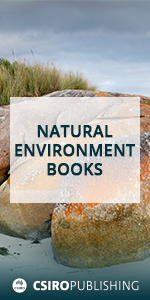RJ17124High soil acidity under native shrub encroachment in the Cobar Pediplain, south-eastern Australia
The effects of shrub encroachment on soil condition can be positive or negative. We found more acidic soil pH profiles under individual shrubs compared with under trees in areas of dense shrub encroachment across the Cobar Pediplain of south-eastern Australia. Surface litter and soil chemical measurements suggest shrubs and trees cycle material differently, and we speculate as to a net export of resources from underneath shrubs at the sites examined.




